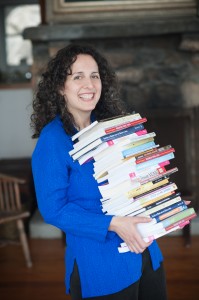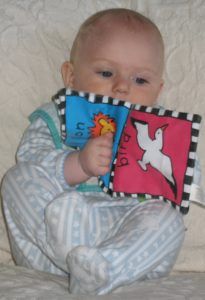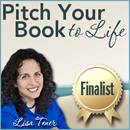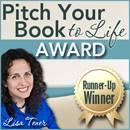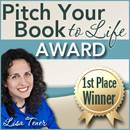
I met Juan O’Callahan this past June at the University of Rhode Island’s Ocean State Summer Writers Conference and provided editing and advice over the next few months. When he self-published his excellent book, Wellness for Super-Seniors: How to Support Your Parents’ Health & Happiness & Help Them Live Longer, Better, I asked if he had advice to share with authors.
Lisa: Can you share with blog readers how you started with the idea for Wellness for Super Seniors?
Juan: I started out producing a manual for the wellness for elderly seniors –people over 75–consisting of exercises and nutrition practices that I had originally developed for myself, and was now teaching to others in my community and to some of my former military peers. It consists of my special exercises, advice and recipes on sound nutrition, and tips on certain health issues.
Lisa: What were some of the biggest challenges you faced?

Juan: Relatives and friends advised me to make it more personal: “Talk about yourself,” they said; “Add some stories of your students, case histories, examples.” I struggled with making the vignettes long-winded and tedious, and not knowing where to insert them, if at all. I also began to discern that my manual was potentially turning into a book…and if that was the case, I would have to write longer and better introductions to each of the three core tutorial sections.
Lisa: That’s one of the wonderful things about writing, seeing how your ideas grow and develop with you. When you knew this manual was becoming a book, what did you do next?
Juan: I first consulted an online writing coach in California who suggested I had not addressed a specific audience [important for this book] and I enrolled in a summer writing conference at the University of Rhode Island. That’s where I met you, Lisa and had our one-on-one conference about my intentions. You had suggested that I was addressing several different audiences and that I needed to choose one as a primary audience. So, I settled down to rewrite the entire narrative sections of the book.
Lisa: What did you end up rewriting?
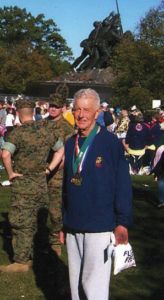
Juan: I wrote each section addressing the children and caregivers of the very-elderly since they would be the ones concerned with the conditions of wellness and quality-of-life of their loved ones. Even then I became disheartened because my audience wasn’t specific enough. I sat down for several more months and tried to resolve my dilemma, redrafting the entire text once again.
Lisa: When you were finished, how did you go about getting your book out into the world?
Juan: Fortunately, my two daughters (my prodders and copy editors) were able to select the appropriate printer and formatting process in order to self-publish my book. With your help and detailed editing, I added paragraphs and even some pages pointing out WHY those side stories had been included. And I also made sure to persuade my audiences that caring for the very old was not necessarily an onerous or unbearable chore, but could be a joy and even surprisingly rewarding to the younger sets.
Lisa: I love that–it’s such an important perspective. Any lessons to share with readers?
Juan: I discovered that what may be of interest to me—the writer–may in fact be be far too long-winded, and perhaps not even that interesting to the reader; I had to learn to trim and delete, and start over again on paragraphs, pages and chapters.
While the whole process—from start to finish—was harder than I had imagined it would be, having finished, the feeling of accomplishment was euphoric and made it all worth the effort.
Lisa: If you could go back and redo the process so it was easier, what would you do?
Juan: In addition to outlining the “story flow” and putting together chapter summaries at the outset, I would get the first chapter down early and reviewed, and made interesting or exciting enough to “grip” the reader. I would consult with, and retain a writing coach at the outset, at the very moment an initial outline and purpose had been set out, even in rough form. I wasted so much time struggling on my own. I believe that I could have shortened the entire process by a year. Your advice and the meticulous corrections and additions you made to my draft manuscript was enormously helpful.
Lisa: It’s great to hear you say that about starting with a coach from the outset. I very much enjoy working with people from the very beginning. I would have also saved a great deal of time if I’d worked with a professional from the outset–my first book took 7 years to go from idea to a book published with a major publisher–I’m sure your first draft was much more professional than mine! That’s why I developed my Bring Your Book to Life Program–so people can get help from the get-go and make sure they’re writing the right book and saving time.
I’ve been reflecting, too, that while many people do get a first draft written in my program in 8-12 weeks, others need a good 5-6 months or so to get a first draft written. With that in mind, knowing that my Bring Your Book to Life 8 week program is coming up in late April, I’m offering a special track for people who want to start their books now and work with me directly to get a head start, so they can have a first draft by mid-June–people who know they are going to need more than 8-12 weeks to write a first draft.
I’m setting up special consultations in the first two weeks of January for those people who want to explore the 6 month program with me. This is a special opportunity that I’m offering to 10 people maximum. So, readers, if you’re interested, e-mail Geri at Geri at LisaTener dot com, to receive an application and set up a time to explore the possibility with me.

